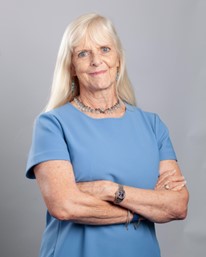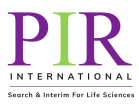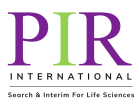Founder of Think-10.com, former CEO of LifeArc (March 2024)

A seasoned Executive and Non-Executive Director across Pharma and Medtech companies, including FTSE 100 biotech, large public and small venture backed boards. Melanie has a strong background in corporate development of strategy in public and private companies to their next phase of growth and is widely connected across the global healthcare sector. She now focuses on a portfolio career concentrating on new technologies and innovation to transform the opportunities for human health and wellbeing.
Melanie’s most recent NED appointment is with privately owned, Portuguese based, BIAL where she is particularly engaged to work alongside the R&D team and to develop the corporate pipeline in accordance with corporate strategy and evolution. She is also a Trustee of the Dementia Research Institute.
Her own consultancy, Think-10, provides support and advice to the life sciences & tech sectors and to bridge the generational divide; enabling young entrepreneurs to achieve their potential and bring through new life changing technologies to maximise patient wellbeing.
Key milestones in your career journey to date?
- When I reflect on how my career has evolved, I realise how very fortunate I have been with the opportunities and timings which have come my way.
- My first PhD at the National Institute of Medical Research under Robin Holliday; and then 1st postdoc with Jean Beggs at the Imperial College CRC group and 2nd postdoc under Paul Nurse. These appointments should naturally have led to an academic career. However, I realised early on that joining industry should create better work/life balance and more certainty over my place of work.
- After three years at Glaxo, Peter Fellner, then CEO of Celltech, appointed me as EVP R&D; and the first female Board member at Celltech plc. Whilst I was slightly less experienced than the appointee he had imagined, he considered I would inject balance, youthful enthusiasm and energy.
- This position was an amazing opportunity to be an Executive on the Board of a FTSE100 company, as Celltech was at the time, and evolved to a global role of EVP and President of New Medicines following the takeover by UCB.
- Eleven years on, I considered it was time to experience the world of early-stage, investor backed biotech, and I took the helm as CEO of Syntaxin. Working with Andy Sandham, my eyes were opened to the financing of small companies, what investors look for and the criticality of IP and an exit strategy. This was a time of great personal growth as I stabilised the company and prepared it for acquisition. Also, a time of personal tragedy as I lost my husband and a sister to cancer.
- After leading the successful sale of Syntaxin to Ipsen in 2013, securing its financial future with its recombinant botulinum toxin in an established company, my choice of CEO roles became greater.
- Syncona’s Chris Hollowood and I worked together when I joined NightstaRx as founding CEO, evolving to NED when it became evident that a US based CEO was essential to the company strategy. NightStaRx exited to Biogen within a couple of years and the gene therapy ophthalmology technology continues to provide hope for people destined to lose their sight to genetically caused disorders of the eye.
- In 2015, the opportunity to learn about medtech came along; joining BTG plc as CSO. I had spent 4 years on the board and then 4 years as CSO. Learning massively about the differences between the businesses of pharma and medtech.
- Once the R&D strategy was fully integrated, and succession planning in place, I joined LifeArc as CEO; combining the many threads of my 23-year career; and the chance to enhance patients’ lives through investing in transformational science. This was a significant project requiring the driving of substantial strategic and transformational change as LifeArc moved from being a small government funded organisation, based on translation and technology transfer, into a self-funded £1.5bn+ organisation dedicated to progression of innovation to benefit patients in specially chosen areas of unmet wellbeing patient and healthcare needs.
Who has had the greatest influence over your career?
- My parents always supported me and my siblings in the belief that we could do anything we wanted.
- Throughout my career there have been so many pivotal relationships; almost impossible to mention all of you who have supported and championed me over the years. But I will mention:
- Simon Hardy who was my lecturer and tutor at York University Biology Department was a leading inspiration to me – enhancing my love of science with molecular sciences and microbiology and subsequently acknowledging and presenting my honorary DPhil from York.
- George Davies who has coached and enabled me to think in the round and make more informed decisions with a wonderful, insightful, warm, yet questioning, style to heighten self- awareness, qualifying the recipient to assist and develop.
- Paul Nurse who generously welcomed my approach in the pub, now Coopers, Lincoln’s Inn Fields, in 1985 when I asked if I could come to a postdoc with him. My work with Paul led to the linking of the cell cycles of yeast and humans – through cloning of a human gene by complementation, published in Nature May 1987.
What top three attributes make an outstanding and relevant leader in today’s world?
- Self-awareness, being honest and authentic in all relationships.
- Invest in others and catalyse their success to build a sustainable organisation.
- Developing self-resilience by recognising ‘it’s up to you’ how life works out; and not the responsibility of others.
Describe your approach to identifying and developing high performing teams
- Passion and belief in others will enable you to identify individual’s strengths and create greater team cohesion; and hence channel their contribution and energy.
- Value the diversity within a team, whilst recognising the power of harnessing those differences, to create the whole high-performance team.
How does your company meet the challenges of leading a multi-generational workforce?
- Find a common language across the generations through conversation.
- Recognise that there will be different expectations which can be bridged by inclusion in activities and goals.
Tell me something about your company that you would like to share with the PIR community
- My own organisation, Think-10.com, was set up in 2009 to encourage discussions about leadership and bridge generational gaps, initially across the life science sector; now including broader tech companies.
- I am passionate about good, (meaningful, respectful, honest and kind) leadership and feel it is evermore needed as the leadership style of the future – whilst encouraging robust performance and keeping the person whole as they move forwards.
- I seek to influence a shift in perspective that puts the patient at the centre of healthcare and wellbeing. Informed future generations want to be able to make decisions about their health, wellbeing and treatments.
- Through genetics, and increasingly through diagnostics, we have more meaningful data to work with about our health profiles and future.
- Younger generations are much more invested in living the best possible life; and working out what is possible vs what is required.
How has your company created a more diverse culture in recent years; and what do future challenges look like?
- Encouraging that focus on accreditation alone will not maximise diversity in the UK boardroom; education is not the only assessment criteria, but other aspects of life’s experience build skills and intuition that can enhance the workplace.
- Diverse leadership characteristics, like high EQ, will result in different behaviours and outcomes around the boardroom table.
- Recognise that there are many ways of gaining credibility at the ‘top table’; find your own way rather than mirroring or attacking established norms.
The provision of flexible working and employee wellness support are increasingly important in the retention and attraction of key talent. How are these being managed by your company whilst ensuring that productivity targets are met?
- The recognition and value of zoom, and other VC systems, could not come soon enough; for many reasons:
- It has been a missing piece of the enablement of contribution by women for generations, enabling women to maximise their contribution and skills to manage complexity and time, as well as deliver for the workplace. These were not options in my early career where one had to be present in one place of work, each and every day, thus restricting on the contribution to work and home.
- It has created far greater flexibility in the corporate world and has levelled out established hierarchies.
- Companies of all scale have recognised the value of managing output rather than presence.
- Finding the balance offered through hybrid working is no doubt the healthiest option for those who can; whilst also recognising that being physically together does enhance team dynamics and encourages the less experienced to learn from colleagues and have fun.
What will be the biggest technological transformation in your sector over the next 5 years?
- AI and clever science-based algorithms will speed up translational innovation; but quite when and how remains unclear. There are numerous disparate examples working without a continuum just now – they need to be joined up.
- The data needs to be built, from which speed, better output and greater cost savings will be achieved.
What is your hidden talent or something that might surprise others about you?
- Exercise has always been an integral part of my life, wherever I have found myself in the world.
- I used to lead aerobics classes years ago.
- Now that I have more time, I am taking my Level II training certificate so I can teach aqua aerobics and share my passion with others.
What advice would you give your 23-year old self?
- It’s OK to relax and have fun, whilst also working hard.
- Strive for balance and remember how important people are, both professionally and personally.
Words of Wisdom?
- Best Advice I was given:
- Never underestimate your Board!
- Advice I’d give:
- Be kind to yourself and seek continual balance.
- What I wish I’d known:
- Identify those with different agendas around the Boardroom table; and invest your trust accordingly!

